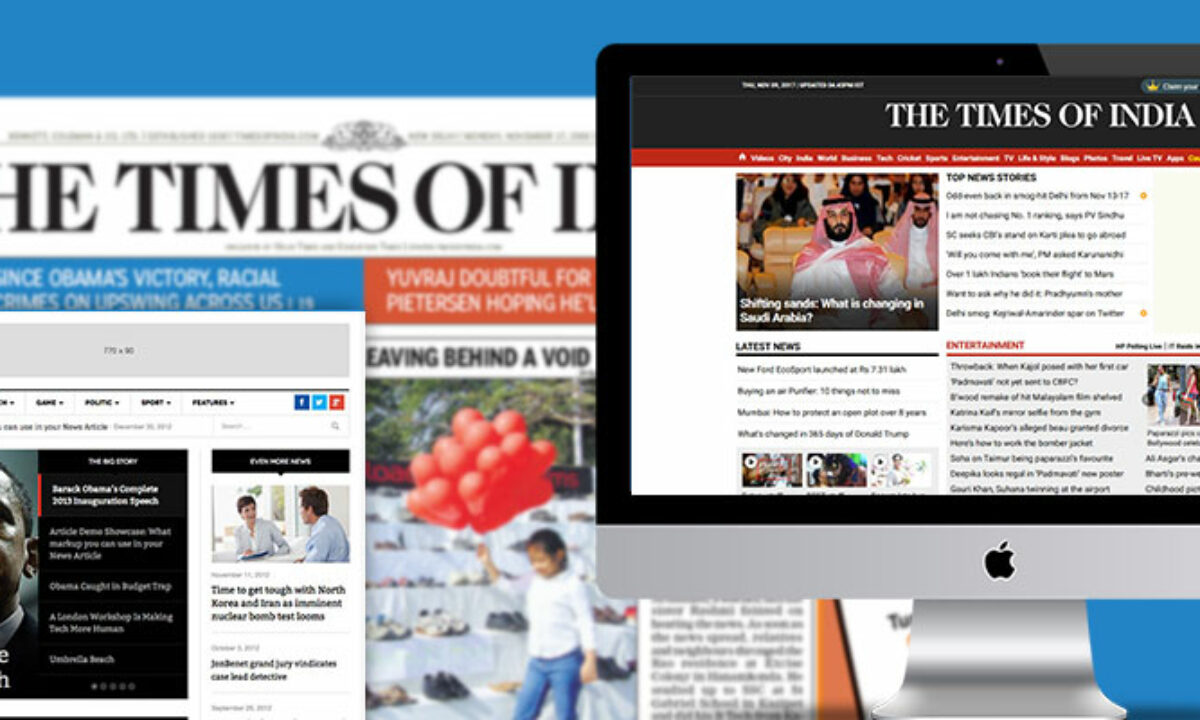Indicators on International News Online You Should Know
Wiki Article
The Of International News Online
Table of ContentsThe Only Guide to International News OnlineSome Ideas on International News Online You Should KnowSome Known Questions About International News Online.Some Known Facts About International News Online.
Some social media sites despite having fairly tiny overall audiences stand out for having high shares of customers that consistently go to the website for news. On the other hand, only 15% of Snapchat users frequently get information on the application.No social media sites site included right here has normal news consumers that are more likely to be Republicans or lean Republican, though there is no significant partisan distinction among information consumers on Facebook, X or Nextdoor. (Review the Appendix for information on united state grownups in each market team and party who frequently get information from each social media sites site.) This reality sheet was assembled by Study Expert Jacob Liedke and Study Partner Luxuan Wang.
, Sept.
The International News Online Diaries
When asked whether social media is a great or bad thing for democracy in their nation, an average of 57% across 19 countries state that it is a great point. In virtually every country, close to fifty percent or more state this, with the belief most typical in Singapore, where approximately three-quarters think social media is a good point for democracy in their nation.And in the U.S., only around a 3rd think social media sites is positive for democracy the smallest share among all 19 countries checked. In 8 nations, those who think that the political system in their country enables them to have an impact on politics are additionally more probable to say that social networks is an advantage for freedom.
Those who check out the spread of incorrect details online as a major danger to their nation are less likely to claim that social networks is an excellent point for democracy, compared to those who check out the spread of false information online as either a small danger or otherwise a danger in all.
This pattern appears in 8 various other countries too. Views likewise differ by age. Older adults in 12 nations are less likely to state that social media sites is an advantage for democracy in their nation when contrasted to their more youthful counterparts. In Japan, France, Israel, Hungary, the UK and Australia, the void between the youngest and oldest age groups goes to least 20 percent factors and ranges as high as 41 points in Poland, where nearly nine-in-ten (87%) younger adults say that social media has actually been an advantage for democracy in the country and just 46% of adults over 50 say the same.
International News Online for Dummies
Across the six issues evaluated, few tend to claim they see no modifications because of enhanced connection rather seeing points transforming both positively and negatively and usually both at the very same time. A mean of 84% claim technical connection has made people simpler to manipulate with incorrect information and try this site rumors the most among the 6 problems checked.In a lot of countries, those that assume social media has actually made it much easier to control people with misinformation and reports are also extra most likely to assume that social media has made individuals a lot more informed. When it involves national politics, the net and social networks are normally seen as disruptive, with a median of 65% saying that individuals are now extra divided in their political viewpoints.

In South Korea, 90% More about the author of those under age 30 say social media makes individuals simpler to adjust, contrasted with 65% of those 50 and older. (Surprisingly, U.S.-focused research has actually discovered older grownups are a lot more most likely to share misinformation than younger ones.) People with more education and learning are also frequently extra likely than those with much less education to say that social media sites has caused people being simpler to manipulate.
International News Online Can Be Fun For Everyone

In 2016, for instance, following the U. International News Online.S. presidential political election, 64% of U.S. adults thought totally made-up news had triggered a large amount of confusion about the standard truths of current events. At the time, around a 3rd really felt that they usually came across political information online that was totally comprised and another half stated they usually came across news that was not totally accurate.
In Sweden, Japan, Greece and the Netherlands, around eight-in-ten or even more share this sight, while in Malaysia, a smaller majority (56%) says the very same. More youthful grownups have a tendency to see social networks making people extra educated than older grownups do. Older grownups, for their part, don't necessarily see the net and social networks making people less informed regarding what's taking place in their country; rather, they're rather much more likely to define these systems as having little impact on people's info degrees.
But those ages 50 and older have to do with imp source two times as likely to state social media sites has not had much effect on how enlightened individuals are compared with those under 30: 19% vs. 11%, respectively. In seven of the evaluated nations, people with greater degrees of education and learning are more probable than those with reduced degrees to see social media sites notifying the public on current events in their own country.
Report this wiki page